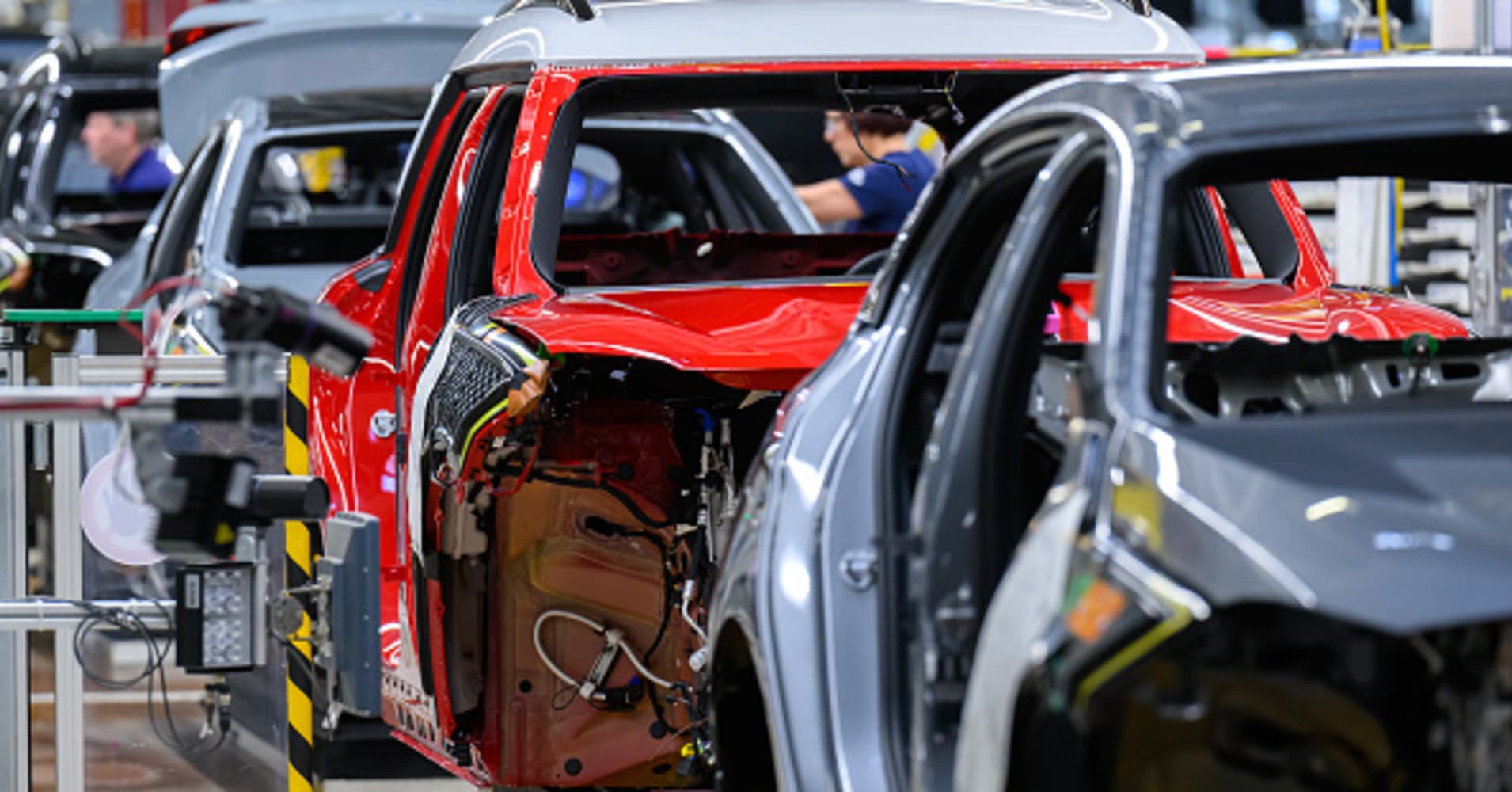Germany's Auto Leaders Boost as U.S.-Japan Deal Sparks Tariff Hope

European Auto Giants See Major Gains Amid U.S.-Japan Trade Agreement
Shares of major European automotive companies experienced a significant rise on Wednesday, driven by the recent U.S.-Japan trade agreement. This deal has sparked optimism about potential tariff reductions for other key auto exporters, including the European Union and South Korea.
Volkswagen, BMW, and Mercedes-Benz Group all saw their stock prices increase by more than 4%, while luxury automaker Porsche recorded a substantial jump of 6.3%. The Stoxx Europe Autos Index rose by 3.8% during the day, reflecting the positive sentiment across the sector. In Milan, shares of Stellantis, the parent company of Jeep, also climbed by approximately 6.6%.
This surge in stock values followed a strong performance in Japanese auto stocks. Toyota, Honda, and Nissan saw gains of over 14%, 11%, and 8% respectively. The momentum was fueled by the announcement of a major trade deal between the United States and Japan, which is expected to reduce U.S. tariffs on imported Japanese vehicles and parts from 25% to 15%.
Trump’s Statement on the Trade Deal
On social media platform Truth Social, former President Donald Trump described the trade agreement as "perhaps the largest Deal ever made." He later expanded on this in a speech, mentioning that the U.S. and Japan were finalizing an additional deal involving liquified natural gas. Trump also hinted at discussions with Europe, though he did not provide specific details.
Japanese Prime Minister Shigeru Ishiba welcomed the agreement, noting that it represents the lowest tariff rate among countries with a trade surplus with the U.S. According to Reuters, this development marks a significant shift in the trade landscape.
Implications for the EU and Other Auto Exporters
The Citi economist Katsuhiko Aiba suggested that the U.S.-Japan trade deal could influence future negotiations with other major auto exporters, such as the EU and South Korea. He pointed out that the reduction in auto tariffs without any cap on exports could have broader implications for these discussions.
The German Association of the Automotive Industry (VDA) urged the EU to intensify its efforts to reach a trade deal with the U.S. VDA President Hildegard Müller emphasized the importance of exploring all options to mitigate the tariff conflict, including reciprocal trade facilitation and reducing protectionism.
Concerns from U.S. Automakers
Separately, a group representing Ford, General Motors, and Stellantis reportedly raised concerns about a potential trade deal that would lower Japanese auto tariffs to 15% while maintaining duties on Canadian and Mexican imports at 25%. This discrepancy could create challenges for U.S. automakers operating in different markets.
Equity analyst Rella Suskin from Morningstar noted that it remains difficult to predict whether a similar deal could be reached with the EU. However, she pointed out that the U.S. and Japan's agreement demonstrates that a tariff below 20% is achievable. She also highlighted the significance of Japan's commitment to invest over half a trillion dollars in the U.S., questioning whether the EU could match this level of investment.
Market Reactions and Future Outlook
The European Union accounts for a significant portion of the U.S. market, with 22% of the EU's exports going to the U.S. in 2024, according to data from the European Automobile Manufacturers' Association (ACEA). As negotiations continue, the automotive sector remains highly sensitive to trade policies and tariff changes.
With the U.S. threatening to raise import duties on EU goods to 30% if no agreement is reached by August 1, the pressure on the EU to secure favorable terms is mounting. Analysts are closely watching how these developments will shape the future of the global automotive industry.